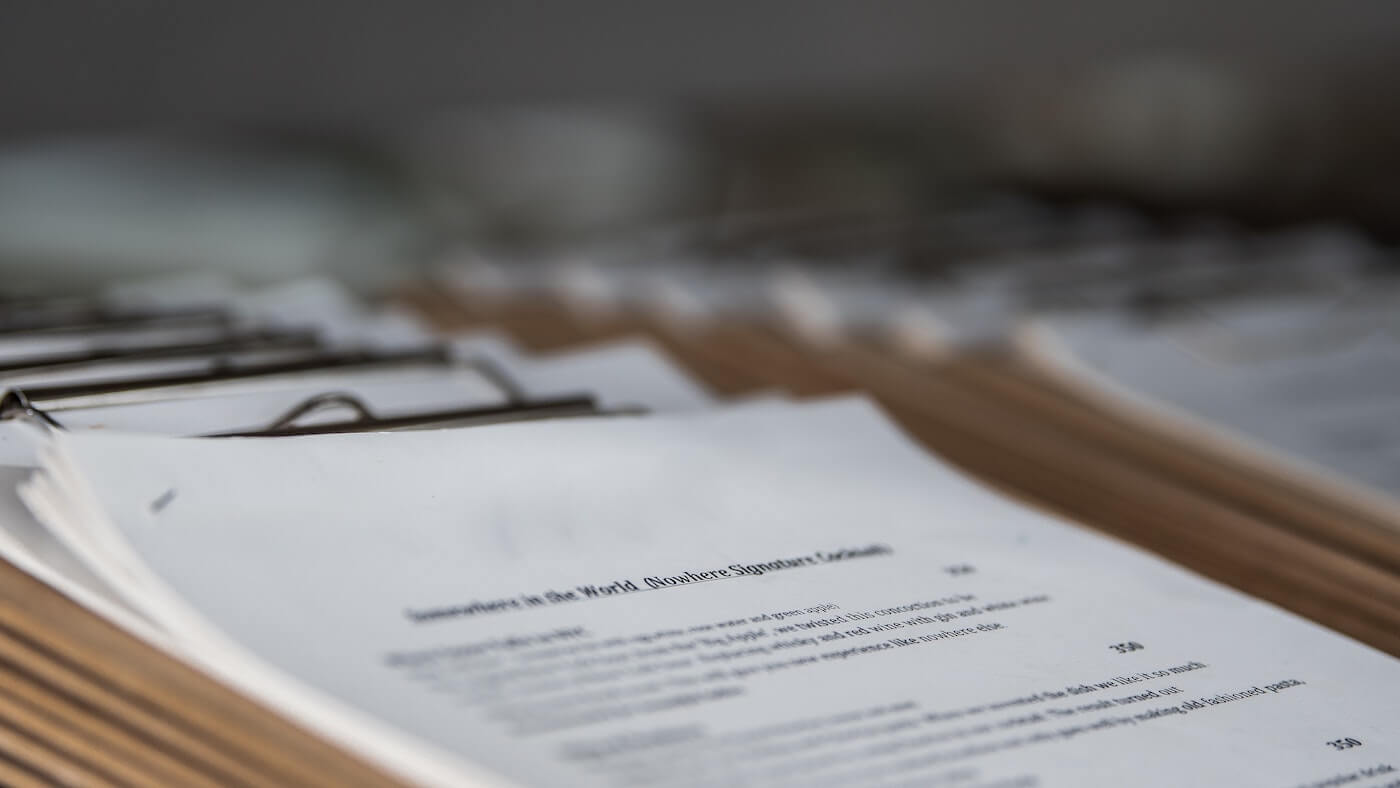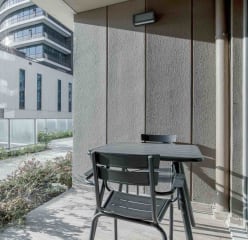How to write a 30 day notice letter to your landlord
Do you want to move out of your apartment? Here’s how to write a 30 day notice letter to your landlord, including a helpful template.

Are you looking to move out of your rental apartment? Maybe you have decided to relocate to a new city. In order to get the maximum security deposit back and preserve your reputation, you should give 30 day notice to your landlord. Some leases even require 60 days notice! If this is your first apartment or you haven’t moved in a while, you may be intimidated by writing a 30 day notice letter.

Don’t worry, it’s pretty straightforward and won’t take more than 10 minutes of your time. We’ll cover everything you need to know to write the perfect 30 day notice letter to your landlord.
Here’s a look at what this guide will explore:
• What is a 30 day notice letter?
• Why is writing a 30 day notice letter important?
• How does a 30 day notice letter to a landlord work?
• How do I inform my landlord I am intending to move out?
• How should I provide my notice to my landlord?
• What to do before giving notice
• Do I have to pay full rent for the month I move out?
• Writing your 30 day notice
– What to mention in your notice
– What not to avoid mentioning
• A template of a 30 day notice letter to a landlord
• Final considerations
Are you ready to write a 30 day notice letter to your landlord? Let’s get started!

What is a 30-day notice letter?
Even though we are well into the Internet age, some processes still rely on paper documents. If you signed a physical lease instead of submitting an eDoc, you likely need to send a notice to your landlord when you are ready to move on. But what is a 30 day notice letter? Simply put, this is a letter – or email – that serves as formal written notice to your landlord that you intend to vacate your home. Most leases require 30 days’ notice. Check your lease to make sure that you aren’t required to give more notice. Some lease agreements require 60 or even 90 days’ notice when a tenant intends to vacate.
Why is writing a 30-day notice letter important?
You may be wondering if you really have to write a letter. Couldn’t you just text your landlord, or call? Unfortunately, no. In the unlikely event that your landlord wants to mess with you, this letter will protect you. If you fail to give 30 days’ notice, it leaves your landlord open to squeeze additional rent out of you. They could simply delete the text you sent or “forget” that you called to notify them. Landlords can even keep your security deposit if you fail to write 30-day notice letter. The reason to write the letter is twofold. Yes, you want to politely inform your landlord you are leaving. But this letter also serves as proof that you gave your landlord notice.

It protects your reputation
Politeness is important in a civil society. This is even more true when you consider who you and your landlord may know in common. If you don’t give notice, your landlord may complain about you. Best case scenario, they gripe to a friend or a spouse. But what if your landlord’s complaints about your flaky behavior got back to someone in your new apartment complex, or a colleague? Writing a 30 day notice letter to your landlord protects your reputation and smooths the way for future apartment rentals. After all, landlords network with each other!
It helps to avoid any legal issues
In addition to protecting your reputation, a 30 day notice letter helps you watch your back. In the unlikely event that your landlord tries to sue you or retain your security deposit, the letter protects you. Using registered mail, where the recipient signs for the letter, is an even better way to protect yourself. If you will be emailing your 30 day notice letter, you could also Cc a friend or family member so there is a third party to the communication. (Don’t Cc your lawyer just yet, though! Your landlord could interpret that move as hostile.)
How does a 30 day notice letter to a landlord work?
The actual letter you will write is pretty simple! You simply need to include your personal details and the date you intend to move out. The template at the end of the article will help you get started! It’s also important to plan from the outset how you will deliver your letter, by email or by registered mail.
How do I inform my landlord I am intending to move out?
It’s important to send a formal letter to your landlord giving 30 days’ notice. That said, it’s also OK to text or call your landlord to let them know even sooner. Be sure to mention that you will be sending a 30 day notice letter as a formality.
How should I provide my notice to my landlord?
As we have covered, there are some very good reasons why you need to write a formal 30 day notice letter to your landlord. It’s best to send your letter by registered mail, but you can also email it if you include a third party in the recipients list.
What to do before giving notice
Unless you are moving out due to a rent increase, you should find a new home before giving notice. Of course, if you’re skipping the traditional apartment search and opting for a furnished rental, you can skip that step.
If you have roommates, you will also want to inform them that you will be terminating the lease. They may want to take it over.
It’s also important to check your lease to see how much is required. If you agreed to provide 30 days notice, a 30 day notice letter won’t do much good!
Do I have to pay full rent for the month I move out?
In most cases, you will not need to pay rent after you have vacated your apartment. This requires you to plan your move to coincide with the end of your lease.
If you give 30 days’ notice and vacate your property by the final date of your lease, you do not need to pay any additional rent.
However, if you will be living in the apartment for most of the month, you still need to pay rent.
For example, if you move on September 28, you can’t expect to skip paying September rent.
Unless you are moving into flexible term accommodations, it’s a good idea to wait until the end of the month to move.

Writing your 30 day notice
Are you ready to get started? It’s a good idea to have your current lease handy before you begin.
Your lease will help you decide what you need to include in your 30 day notice letter. The specifics of your letter depend on the length of your lease, how much notice is required, and when you want to move.
What to mention in your notice
There are a few things that it’s critical to include in your 30 day notice to landlord letter.
• Your name
• Your rental unit address
• The date your lease ends
• The date you will move out
• Your phone number
• Your email address
What not to avoid mentioning
As we have said, not every 30 day notice letter is the same! You need to include all of the information above.
However, certain matters fall into a gray area. Your landlord doesn’t need to know every detail of your move.
It’s important to keep your 30 day notice letter to your landlord concise and to the point.
Depending on your particular circumstances, you may also want to address the following issues in your letter.
• How utilities will be handled
• Your new address, for the return of your security deposit
• Your reason for moving out
• Damages you caused to the apartment
• Whether you want to request a walkthrough inspection from the landlord
A template of a 30 day notice letter to a landlord
The following template will help you get started writing your 30 day notice letter. You can email the letter to your landlord, send it in the mail, or hand-deliver it if your landlord lives nearby.
[Date]
[Rental unit address]
Dear [Landlord’s Name],
I am officially notifying you that I will be vacating the premises at [Rental unit address] rather than renewing the lease.
The lease is set to expire on [Date], and I will vacate the premises by [Date]. At the time of our move, I will ensure that all utilities are paid in full and transferred out of my name.
I have kept the apartment in excellent condition and enjoyed my time staying there. I would also like to request a walkthrough to go over the unit and note any issues with management.
You can send my security deposit to [New address] within 30 days of my departure.
If you have any questions, please feel free to contact me at [Phone number] or by email at [Email address].
I will await your email or phone call to set up arrangements for the walkthrough and any next steps.
Sincerely,
[Your Name]
Simply copy the letter above into Google Docs or a word processing program and fill out the bracketed sections with your personal information.
It’s also a good idea to keep a copy for yourself.
Final considerations
You have learned all of the reasons why it’s important to write a 30 day notice letter to your landlord. Once you have filled out your own version of our template, you’re all set! Remember: Send it on time! If you fail to give your landlord 30 days’ notice, they can still charge you for a full month of rent after you vacate your apartment. Of course, it’s smart to wait until you have signed a new lease to give notice. But there’s one exception to that rule! Choosing a flexible-term rental over a traditional apartment is one easy way to save time on your move. Blueground’s thousands of furnished rental apartments in key cities around the world put you in the driver’s seat.
Our move-in ready homes have everything digital nomads need, from furnishings and appliances to basic kitchen items like pots and pans. We have everything from townhomes to loft apartments in some of the coolest destinations across the globe. Rather than being tied to a year-long lease, you can move in and move out on your schedule. (You will also never need to write a 30 day notice to landlord letter when you want to leave!) Total flexibility in cities around the world is matched by stylish furniture and even thoughtful extras like Marshall Bluetooth speakers. You’ll also have access to Blueground’s extensive network of benefits for guests, like cleaning services. Here are some of the other benefits of renting with Blueground:
• Easy transfers
• Large inventory of apartments
• Customer support
• Stylish housing
• Flexible terms
Find out more about the Blueground experience!







